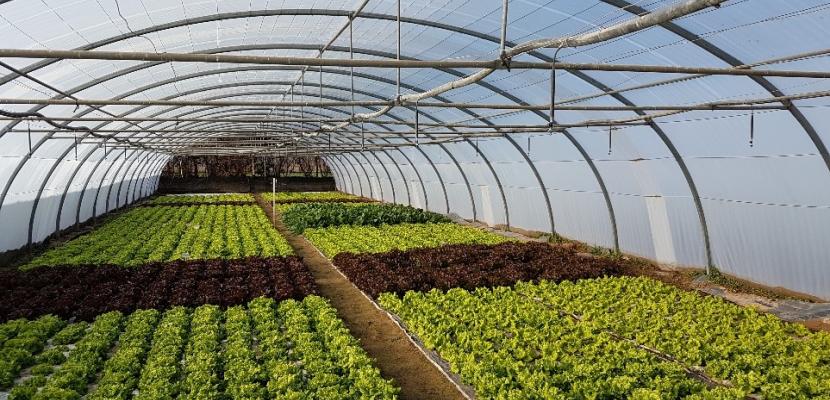Image

AgroPaper, a sustainable and biodegradable solution for the agricultural mulching technique.
Published on 25 March 2021

Spain
Comunidad Foral de Navarra
This is the good practice's implementation level. It can be national, regional or local.
About this good practice
There is a problem in the management of agricultural plastic mulching after its use. It is difficult to remove the complete plastic from fields, therefore small pieces end up in the soil and the surrounding areas. In addition, there is an issue when valorising the agricultural plastic mulching because it is “dirty” with high percentage of soil on it, and usually it ends up in landfills.
A company in Navarra has developed a new product called AgroPaper that solves this problem. It is made with pine fibres that have their origin in certified wood forests of the region. This mulching has the same advantages of the plastic mulching but improves its disadvantages.
The company uses an internal LCA tool to compare products and evaluate the environmental impacts. It shows that regarding CO2 emissions associated, Agropaper has a good performance compared to plastic. Currently, a certified life cycle assessment of the product is being developed in the framework of LIFE AGROPAPER project.
A Life Cycle Cost of the product was made from the farmer purchase to its final waste management. It showed that the economic price of the product is slightly higher than the plastic mulching, but it is almost compensated, from the farmer perspective, because waste collection and management costs are avoided.
A first test of the product was carried out in different experimental farms with the support of a public organisation, INTIA-Navarre Institute of Transfer and Innovation in Agrifood sector.
A company in Navarra has developed a new product called AgroPaper that solves this problem. It is made with pine fibres that have their origin in certified wood forests of the region. This mulching has the same advantages of the plastic mulching but improves its disadvantages.
The company uses an internal LCA tool to compare products and evaluate the environmental impacts. It shows that regarding CO2 emissions associated, Agropaper has a good performance compared to plastic. Currently, a certified life cycle assessment of the product is being developed in the framework of LIFE AGROPAPER project.
A Life Cycle Cost of the product was made from the farmer purchase to its final waste management. It showed that the economic price of the product is slightly higher than the plastic mulching, but it is almost compensated, from the farmer perspective, because waste collection and management costs are avoided.
A first test of the product was carried out in different experimental farms with the support of a public organisation, INTIA-Navarre Institute of Transfer and Innovation in Agrifood sector.
Expert opinion
While this data base of policy makers typically refuses the promotion of company practices, the novelty of the approach and its important environmental impacts justify to bring to the attention of policy makers especially in teh agricultural areas the possibility to replace plastic foil as mulching material by a paper-based solution. Public bodies in gricultural regions with high percentage of fields covered by plastic mulching could now incentivise their farmers to try out the new solution. As famers migh be reluctant to change their current practice, there could be small incentives related to the switch of mulching materials.
Works at
Interreg Europe Policy Learning Platform
Resources needed
FEDER funding was used to test the product. It was necessary the collaboration with stakeholders (farmers, agricultural institute, companies) to have a feedback of the product and improve its development.
Evidence of success
AgroPaper has the same advantages of a plastic mulching but improves its disadvantages. There is no need to manage its waste because the product is incorporated to the soil, helping to enrich and improve the quality of the soil for future crops. It has the peculiarity to withstand the sedge, a weed that plastic mulching do not control. In addition, it avoids the carbon footprint of the plastic production because the paper has a negative one because it comes from sustainable forest.
Potential for learning or transfer
Environmental impact considerations of the product from its design is remarkable in this initiative. The use of renewable and sustainable raw material avoids CO2 emissions, waste generation and the exploitation of non-renewable materials.
To improve it characteristics, the product has been developed in collaboration with public and private stakeholders from the agri-sector, evaluating its performance in different environments and stages of the chain.
The use of an internal comparative LCA has revealed the environmental advantages of AgroPaper. This will be confirmed by the certified life cycle assessment that is currently being developed. LCC study results must be considered along with environmental benefits.
Policy makers have the opportunity to promote this alternative in the agri-food sector and at the same time protect the environment and fulfil with the European Green Deal. The introduction of the product in the measures of the Common Agricultural Policy could be appropriate.
To improve it characteristics, the product has been developed in collaboration with public and private stakeholders from the agri-sector, evaluating its performance in different environments and stages of the chain.
The use of an internal comparative LCA has revealed the environmental advantages of AgroPaper. This will be confirmed by the certified life cycle assessment that is currently being developed. LCC study results must be considered along with environmental benefits.
Policy makers have the opportunity to promote this alternative in the agri-food sector and at the same time protect the environment and fulfil with the European Green Deal. The introduction of the product in the measures of the Common Agricultural Policy could be appropriate.
Further information
Website
Good practice owner
You can contact the good practice owner below for more detailed information.
Organisation
Smurfit Kappa

Spain
Comunidad Foral de Navarra
Contact
PROJECT MANAGER
